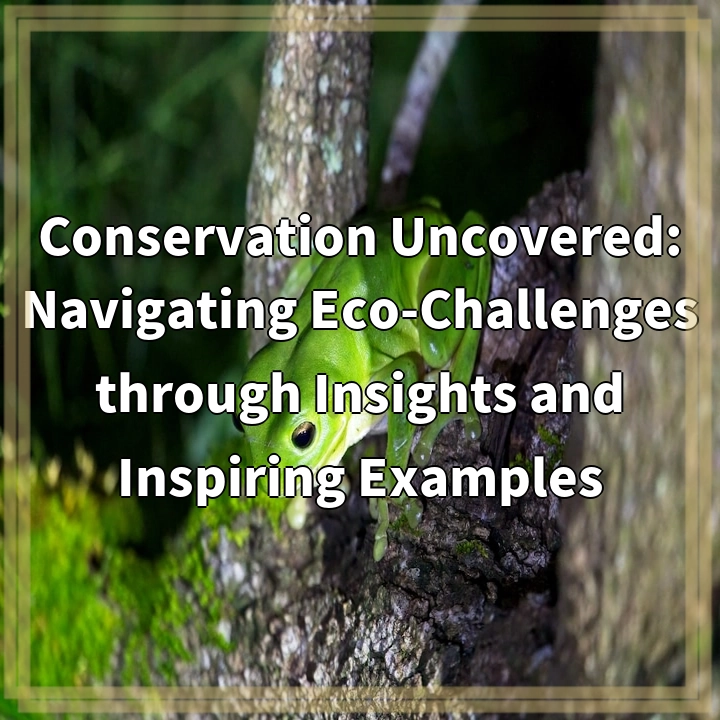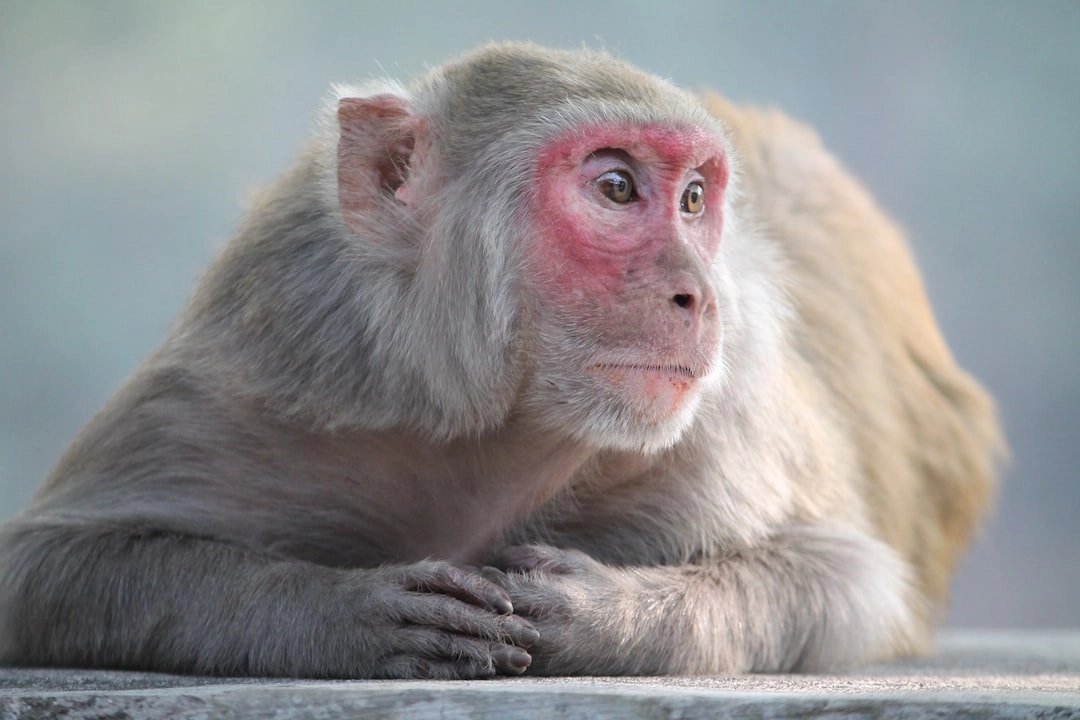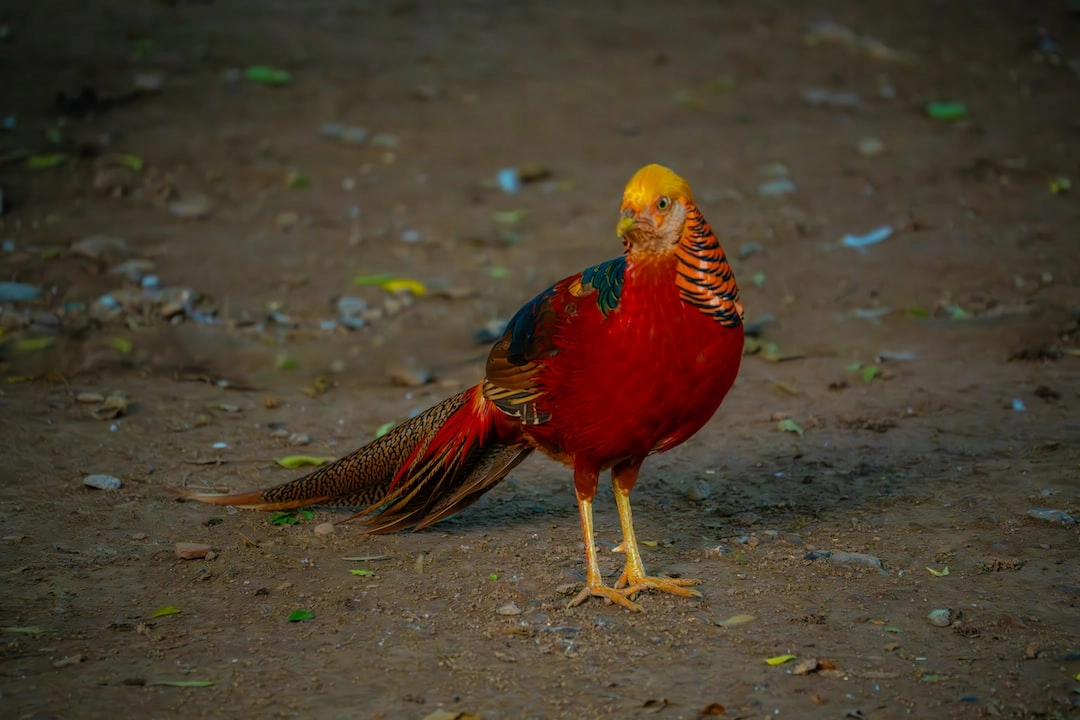
What is Conservation Uncovered?
Conservation Uncovered aims to shine a light on the pressing environmental issues we face today and the vital need for conservation efforts. It is a platform dedicated to exploring the challenges, solutions, and inspiring examples of environmental conservation around the world.
The Real-World Problems of Conservation
Conservation is faced with a range of complex and interconnected problems that require urgent attention. Here are some of the key issues:
Loss of Biodiversity
One of the most critical challenges in conservation is the rapid loss of biodiversity. Human activities such as deforestation, habitat destruction, pollution, and climate change have contributed to the decline and extinction of many plant and animal species. This loss of biodiversity not only disrupts ecosystems but also threatens our own well-being and the stability of the planet.
Habitat Degradation
The degradation of habitats is closely linked to the loss of biodiversity. Natural habitats, such as forests, wetlands, and coral reefs, are being degraded by various human activities. This includes activities like urbanization, industrial development, overexploitation of resources, and unsustainable agricultural practices. The destruction of habitats disrupts ecological balance, displaces species, and reduces overall ecosystem resilience.
Climate Change
Climate change poses significant challenges to conservation efforts. Rising temperatures, changing precipitation patterns, and extreme weather events have far-reaching impacts on ecosystems and species. These changes can lead to shifts in species distribution, altered migratory patterns, disrupted reproductive cycles, and increased vulnerability to diseases. Conservation strategies must adapt to mitigate and adapt to the effects of climate change on natural systems.
Poaching and Illegal Wildlife Trade
Poaching and illegal wildlife trade remain major threats to many endangered species. Demand for products derived from wildlife, such as ivory, rhino horns, and exotic pets, drives illegal hunting and trafficking. This illegal activity not only decimates populations of iconic species but also undermines the integrity of ecosystems and local economies.
Land Use Change
Human-driven land use changes, such as urban expansion, industrial agriculture, and infrastructure development, continue to fragment and degrade natural landscapes. Conversion of natural areas into agricultural fields or urbanized spaces leads to habitat loss, decreased connectivity between habitats, and increased vulnerability to invasive species. Sustainable land use planning and management practices are essential for effective conservation.
Overall, Conservation Uncovered strives to raise awareness about these real-world problems and present inspiring examples of conservation initiatives that are making a positive impact. By highlighting insights and solutions, we aim to encourage individuals, communities, and policymakers to take action in protecting and preserving our precious environment.

Solutions to Conservation Challenges
Addressing the real-world problems associated with conservation requires a combination of individual efforts, community involvement, and policy changes. Here are some key solutions:
Habitat Protection and Restoration
Efforts should be made to protect and restore natural habitats, including forests, wetlands, and marine ecosystems. This involves implementing stricter regulations and enforcing protected area designations. Restoration initiatives can involve reforestation, wetland rehabilitation, and creating artificial reefs.
Sustainable Resource Management
Promoting sustainable practices in resource extraction, agriculture, and fisheries is crucial. This includes implementing responsible harvesting techniques, supporting organic and regenerative farming methods, and adopting sustainable fishing practices that protect fish stocks and minimize bycatch.
Combatting Climate Change
Addressing climate change is essential for conservation efforts. This can be done through measures like reducing greenhouse gas emissions, transitioning to renewable energy sources, and implementing climate adaptation strategies that help ecosystems and species withstand changing conditions.
Enforcing Wildlife Protection Laws
Strengthening efforts to combat poaching and illegal wildlife trade is vital. This includes improving law enforcement capabilities, increasing penalties, and raising awareness about the consequences of wildlife trafficking. It is essential to support local communities that rely on sustainable alternatives to wildlife exploitation.
Sustainable Land Use Planning
Implementing sustainable land use practices can help conserve natural areas and reduce habitat fragmentation. This involves incorporating conservation considerations into urban planning, promoting sustainable agriculture and forestry practices, and establishing ecological corridors to connect fragmented habitats.
By adopting these solutions, we can work towards a more sustainable future, where conservation efforts play a crucial role in preserving biodiversity, protecting habitats, and ensuring the well-being of both nature and humanity.















